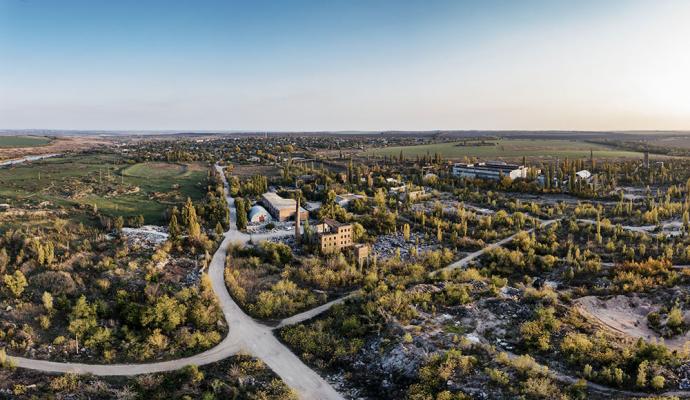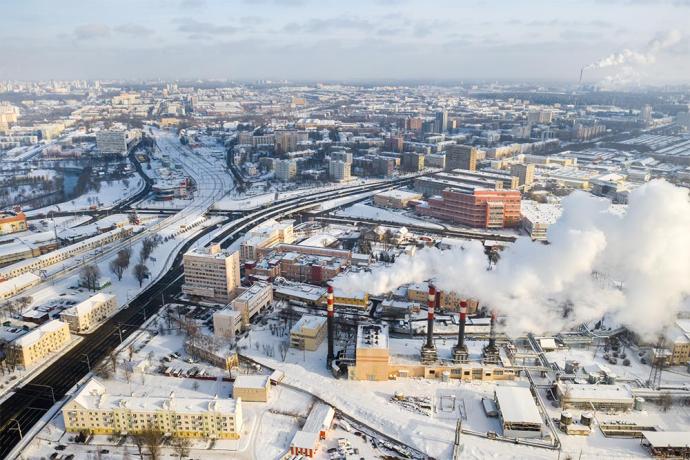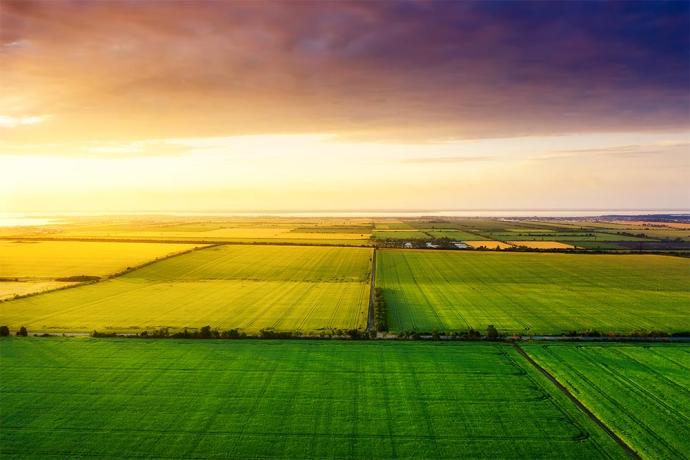What place for industrial activity in the city and in the territories? From the case of renaturation of the Lubrizol site following its fire on September 26, 2019, the chair will advance thinking on the environment of proximity and contribute to scientific knowledge on its territory.
The Chair in brief
The UsinoVerT Chair aims to use the data collected following the fire of September 26, 2019 to advance knowledge on ecological issues (soil and environment), societal issues (employees and citizens) and also to invent innovative devices for the reappropriation by nature of part of an industrial site.
The fire that affected the Lubrizol warehouses and the neighboring site, whose causes are unknown today, is a major case study for researchers and students to conduct experiments and demonstrations of innovative solutions for the reclamation of the site but also reflections on the socio-economic and environmental issues of the factory in the city.
Since September 26, 2019, 39 French and foreign agencies, government bodies and laboratories have produced more than 368,000 results of analyses performed on drinking water, air, animal and human food, surface and groundwater, soil and plants. These data will be used by UniLaSalle.
In addition, the Lubrizol site now has vast spaces whose development and integration into their territorial fabric will be the subject of separate programs.
Three thematic pillars

- Ideas laboratory
- Employee participative workshops
- Student Hackathon
- Regulations
- On-site soil diagnostics, evolution observatory
- Site degradation - e.g. miniaturized ecosystems, biodiversity trails, micro-forests, off-grid cultivation, urban farm
- Workshops and observatories on site
- Participatory actions

- Information & citizen acceptability
- Jobs & territories
- Safety & risks
- Nature & city
- Surveys and participative workshops
- Thematic seminars

- Focus on soils & plants
- Data analysis (database of 368,000 analysis results)
- Agricultural issues
- Mapping of the territory
Working methodology
Scientific framework
The questions addressed will involve both fundamental and applied sciences. Experiments could include modeling approaches, simulations in miniaturized ecosystems and real on-site conditions.
Human resources
The project is based on the mobilization of existing skills within the two structures and is also the subject of a recruitment of a chairholder.
UniLaSalle will be able to mobilize, depending on the operations, the associate professors :
- the AGHYLE UP 2018.C101 unit (Agroecology, hydrogeochemistry, environments and resources), which aims to develop solutions to promote agroecological practices and preserve soil and water quality, and whose multidisciplinary wealth of skills is an asset for a systemic approach to the project
- the INTERACT UP 2018.C102 unit, for its skills in human and social sciences but also in data sciences and artificial intelligence.
Students, engineering students, students of the Masters of Science "Urban Agriculture & Green Cities" and "Agricultural & Food Data Management" of UniLaSalle will be able to be particularly involved in the various actions proposed and supervised by the faculty of the colleges HUMAN and AGROBIOSCIENCES of the establishment.
International resources
The actors of the Chair benefit from a very favourable ecosystem of academic partners and international networks, in particular the Lasallian world network.
Technology and associated skills
For the realization of this program, UniLaSalle has equipment and associated skills grouped within the AGHYLE and INTERACT research units.
The equipment of 4 platforms will be made available to the joint project, including
- An "environment" platform for the study of soil and water quality. This platform allows the measurement of physical and chemical properties (porosity, texture, organic matter, metallic/organic trace elements...).
- An "agrobiodiversity" platform for the analysis of living communities within environments (natural or anthropized). This platform allows, among other things, to measure the genetic and functional diversity of the microbial communities present (bacteria, fungi) and the resulting biological functioning (enzymatic activities, carbon mineralization, etc.).
- An "agrosciences" platform for the evaluation of the relationship between soil health and plant health, with consequences on the nutrition and quality of plant production.
- A "statistical and numerical" platform for data modeling and artificial intelligence. This platform will allow, among other things, the realization of maps, multifactorial analysis of observed indicators, whether biophysical-chemical data or socio-economic data collected by field surveys.
Stakeholders
Lubrizol
Lubrizol France SAS, headquartered in Rouen, France, has been supplying lubricants and additives for engine oils and other transport fluids, additives and fluids for industrial lubricants and fuel additives since 1954. With its three production sites in Rouen, Le Havre and Mourenx, Lubrizol France is the main foreign subsidiary of the Lubrizol Corporation Group. The Rouen site also houses a large part of the European support services (Supply Chain, including Customer Center Europe, Purchasing, Legal, Finance and IT), as well as the headquarters of Lubrizol Holdings France and Lubrizol Advanced Materials France.
The Rouen site employs nearly 400 people at the plant and headquarters. More than half of all vehicles on the road worldwide contain Lubrizol products. These products help improve the longevity and reliability of engines, as well as reduce their emissions.
UniLaSalle Rouen
UniLaSalle is positioned as the engineering school at the crossroads of the energy, digital and ecological transitions. It has 4 campuses (Amiens, Beauvais, Rennes and Rouen), 4,000 students, 20,000 alumni, 6 research units, 10 company chairs, research platforms and innovation centers. The school offers 20 degree courses from Bac+3 to Bac+6 and conducts research activities at the heart of sustainable development issues. UniLaSalle has been awarded the DD&RS label.
The Rouen campus, which is piloting the chair, is an expert in both its training and its research in AgroBioSciences. With an international outlook via its Agro & Food Engineering (i-SAFE) training course, it also offers 2 Masters courses in line with the Chair's challenges: MSc "Agricultural & Food Data Management" & MSc "Urban Agriculture & Green Cities".